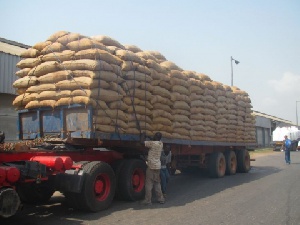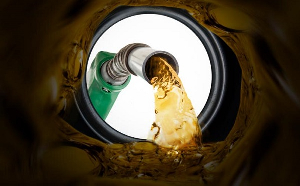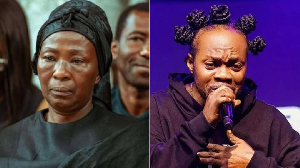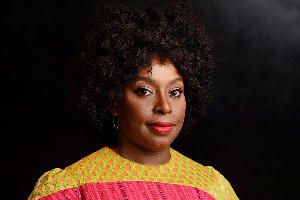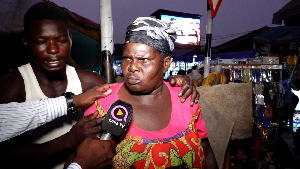Smugglers have trafficked around 40,000 tonnes of Ghanaian cocoa beans into top grower Ivory Coast since November to take advantage of a drop in Ghana's cedi currency, exporters and merchants said.
Cocoa smuggling between the two countries is common but over the past decade it has mainly involved Ivorian beans being taken illegally to Ghana, the world's second largest producer, where the government buys output at a fixed price.
However, Ivory Coast abandoned a decade of sector liberalisation last season and introduced a minimum price for farmers, a measure that has helped to reduce illicit exports. Exporters said the Ivorian price is now seen as more attractive by Ghanaian farmers, who can make bigger profits selling their output to smugglers.
While the volumes of beans being smuggled into Ivory Coast currently represent only a fraction of total output, Ghana risks losing millions of dollars in cocoa revenues if it fails to stabilise its struggling currency.
"We estimate everything that has come in (from Ghana) at 40,000 tonnes at least," the purchasing manager of an Abidjan-based exporter said on Friday. Two other exporters estimated volumes smuggled from Ghana at between 30,000 and over 40,000 tonnes.
"It is possible and probably more. Exchange rate differentials make Ivory Coast's price lucrative," a leading Ghanaian cocoa buyer in Accra told Reuters. A senior official with Ghana's marketing board, Cocobod, said that the regulator was aware of reports of smuggling.
"We are investigating," the official said, declining to comment further. Ivory Coast's October-to-March main crop opened on Oct. 2 with its sector regulator, the CCC, fixing a minimum guaranteed farmer price of 750 CFA francs ($1.55) per kg.
Later that month, Ghana announced it would buy cocoa at 3,392 cedis per tonne, a price which at the time was roughly the same as the Ivorian price. But the cedi, which Ghana's government has struggled to prop up, has since lost nearly 7 percent of its value against the dollar, while Ivory Coast's euro-pegged CFA franc has gained ground on the greenback.
"Currently there's a gap of 60 to 70 CFA francs between the two countries if we take into account inflation and currency fluctuations in Ghana. For small middlemen that's not insignificant," said the exporter based in Abidjan. Both countries have seen robust starts to the 2013/14 season.
Ivory Coast port arrivals topped 900,000 tonnes in the first half of the October-to-March main crop - the highest level on record - according to exporter estimates. Cocoa purchases in Ghana were at 527,214 tonnes by Dec. 19, up 37 percent on last year.
Movement on Motorcycles
Exporters and merchants in Ivory Coast said small amounts of smuggled beans began arriving from Ghana in November, with illicit shipments increasing in the run up to Christmas.
"We're still getting cocoa from Ghana, but it slowed down a bit after the December holidays when there really was a lot of movement on motorcycles all along the border," said Eric Koffi, an Ivorian middleman based near the border. "It's still coming, but it's decreased," he said.
Sector liberalisation and a decade-long political crisis saw a steady increase in smuggled Ivorian beans over the past decade. Industry estimates suggest as much as 200,000 tonnes of Ivorian cocoa were exported illegally during the 2010/11 harvest.
In addition to introducing a guaranteed minimum price for farmers, Ivory Coast's CCC has now also requested that the government post soldiers along its western borders to stem the flow of smuggled cocoa to Liberia and Ghana.
The marketing board announced at the start of the 2013/14 season that it would open discussions with Ghanaian authorities on how the two countries could work together to combat illegal trafficking. ($1 = 482.8360 CFA francs).
(Additional reporting by Kwasi Kpodo in Accra; Writing by Joe Bavier; Editing by David Lewis and Anthony Barker)
Business News of Monday, 13 January 2014
Source: Bloomberg

